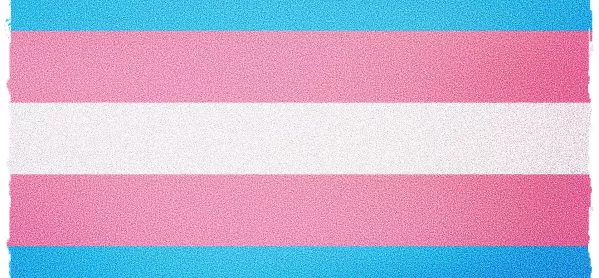How to help trans and non-binary students and staff
Share
How to help trans and non-binary students and staff
Each February, LGBT History Month provides an opportunity to celebrate inclusion within our colleges and to raise awareness of diversity among staff and students.
There is much still to do, however, to make the FE sector a welcoming place to study and work for all, including those who are the "T" within the broader LGBT+ umbrella. For many trans, gender-diverse and non-binary people, our schools, colleges and universities can be stressful, alienating and even hostile places to study and to work.
With support from the Scottish Funding Council, we undertook the TransEDU research to examine the experiences of trans, non-binary and gender-diverse applicants, students and staff in Scotland’s colleges and universities.
We wished to gain insight into the challenges faced in education, their support needs and the practices and support protocols currently in place within institutions. Through a mix of surveys, in-depth interviews and documentary analysis, we gathered the views, perspectives and experiences of trans and gender-diverse students and staff. Our research gathered responses from participants at two-thirds of colleges in Scotland.
Read more: ESFA 'refuses to legitimise' non-binary students
More news: Legal rights for trans teachers outlined in new guidance
Opinion: 'Transphobes are driving children's confusion about gender'
LGBT students' fears
Out of all of our research participants, 86 per cent had encountered barriers to their work or study that they attributed to their trans or gender-diverse status, and nearly half of the college student respondents had withdrawn from their course before completion.
Challenges included concerns about group work and peer relations, access to and use of facilities, instances of verbal abuse and hostility, and inflexible administrative processes around titles, names changes, identification documents and exam certificates.
Students described a gnawing fear before every class, suspecting the registers would again remain in their previous name, thus outing them to their peers. Some students carefully planned their route through campus to avoid areas that they considered or experienced as unsafe, or to reach one of the few gender-neutral toilet facilities.
For staff in colleges and universities, there were instances of bullying and harassment from colleagues and students, within broader cultures of discrimination and trans- and homo-phobias. Others identified issues related to job security, career progression and securing leave to access gender-affirming healthcare.
What colleges can do
For most, a major challenge was the general lack of understanding (often coupled with a wealth of misinformation) around trans experience and gender diversity.
Colleagues and line managers might be keen to offer support, but in the absence of specific policies and thorough guidance, this was generally reactive and ad hoc. It often fell to the individual to educate others and to negotiate the support to which they are legally entitled.
It is important to note that while there is no strong comparative evidence, the further and higher education sectors are performing worse than other sectors in terms of trans equality. Research does establish that trans people – and LGBT people more broadly – do experience myriad barriers and challenges in post-secondary education, conceptualised as linked to broader systems of transphobia, homophobia, misogyny and gendered societal norms.
As education providers, we have a statutory and ethical duty to address these inequalities, including the specific barriers faced by trans students and staff.
‘Named contact’
We recommend that institutions designate a "named contact" within student services or HR, to act as an approachable and knowledgeable first point of contact for trans students and staff.
Further initiatives can be meaningfully embedded, too, such as training, allies’ programmes and senior champions. As individuals, there is also much we can do to demonstrate our support:
- Adding pronouns to email signatures, for example (she/her; he/him; they/their) and being respectful of how people wish to be addressed.
- Committing to educate ourselves and colleagues about gender diversity, and seeking videos, films, books and articles by trans and non-binary creators.
- Simply displaying posters about gender diversity around campus to raise awareness and visibility. Many of our participants – particularly students – said that even small efforts to acknowledge and affirm made a huge difference.
Our research was conducted in colleges and higher education institutions in Scotland but we believe there are lessons and parallels for the whole of the UK. Since the initial project, we have been able to consult and discuss the findings with colleagues in universities across England, and in the Republic of Ireland and the United States.
Any organisation can do this
In all cases, no matter the size and nature of institution, locality or mission, people found echoes of our research within their experiences and understanding.
Organisations were keen to engage in inclusive practice and wished to provide supportive working and learning environments for trans students and staff, but felt there was insufficient knowledge, training or awareness on gender diversity to bring about effective change.
The desire to know and do more should be nurtured. College leaders, staff at all levels and student representatives can become allies of their gender-diverse colleagues – leading on system changes, celebrating diversity and modelling a zero-tolerance approach to transphobia. It cannot and should not be left to individuals with lived experience to champion their cause and to educate others.
We have had less opportunity to discover if our findings chime with those working in colleges in other parts of the UK. We would be interested to hear from people in the sector. Are the issues similar for gender-diverse staff and students, and are there examples of effective practice that could be shared more widely?
Dr Stephanie Mckendry is widening access manager at the University of Strathclyde and Dr Matson Lawrence is a research associate at the university
The Supporting Transgender and Non-Binary Students and Staff in Further and Higher Education book is out now. More information and be found on the TransEDU website
